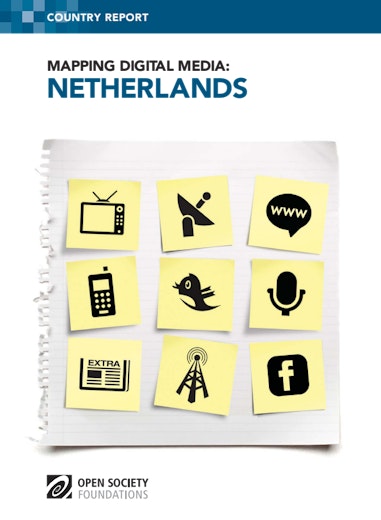The Mapping Digital Media project examines the global opportunities and risks created by the transition from traditional to digital media. Covering 60 countries, the project examines how these changes affect the core democratic service that any media system should provide: news about political, economic, and social affairs.
This is an exciting and difficult time for independent journalism and civil society in the Netherlands. Thanks to unprecedented opportunities for new ways of doing journalism, connecting to audiences or mobilizing civil society, and getting one’s voice heard, a new media ecology seems to be taking shape.
However, the challenges are great. Although newspapers still reach significant readerships, they face grave economic threats from decreasing subscriptions and sales, and shrinking revenue from advertising. "Shocklogs” are making sectors of public debate less civilized, and intensified competition is changing the tone of much news reporting. There is a looming threat of concentration in the distribution market, mostly by foreign companies such as Apple and Google. The rise of PR influence and wire stories, meanwhile, undermines original news-gathering, and poses a particular danger to independent news at the local level.
The means of countering these threats have not yet realized their potential, and may never do so. Investigative journalism on blogs exists, but is for most part still marginal, crowd-funding and other innovative techniques are promising, but it remains to be seen whether they can off set the negative developments. Public broadcasting has so far preserved its traditional standards, but there is no guarantee that it will be able to fill any of the emerging gaps—due to budget cuts and the threat of having to curtail its internet activities.
Download
-
Mapping Digital Media: Netherlands (502.93 Kb pdf file)
Download the complete 106-page report.
